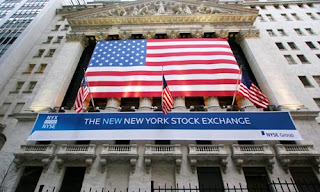UK Financial Investments outgoing chairman says RBS has been forced to hold more capital because of potential penalties
Royal Bank of Scotland is still facing potentially painful penalties from the US authorities over the sub-prime mortgage crisis, the Treasury select committee of MPs was warned on Tuesday.
Already hit by a £390m fine for rigging Libor and in discussions with regulators over an investigation into potential currency rigging, the bank has been forced to hold more capital by the Bank of England because of the possibility of further fines, MPs were told by Robin Budenberg, the outgoing chairman of UK Financial Investments (UKFI).
Budenberg, who was challenged about the influence the Treasury has over the body which was set up look after the stakes in the bailed out banks, said mortgage trading was one of the outstanding issues RBS faces. He made reference to JP Morgan, which has paid £8bn to settle a number of regulators' claims it missold mortgages. "We've asked them where they feel their exposures are and clearly there are a range of regulatory issues that are pending," Budenberg said.
Earlier this month RBS admitted it was holding more capital and putting £38bn of its most troublesome loans into an internal bad bank after a review commissioned by George Osborne ruled out a full-blown standalone bad bank.
Budenberg admitted he had accelerated Stephen Hester's departure from RBS in September. The MPs were told that UKFI had not seen opportunities for a sale of the 81% government stake in RBS in the last two years – which appeared to contradict remarks by the bank a year ago when it raised the possibility of sale in 2014.
Budenberg's successor, James Leigh-Pemberton, indicated that the average price at which the taxpayer bought its stake in RBS – 502p – would not be the only consideration when deciding whether to sell anyshares. "It is difficult not to take it into account but it can't be the only consideration, because when we make our recommendations we also provide it in the context of whether there is an opportunity to realise fair value or more than fair value ," he said.
Leigh-Pemberton said it was "very, very difficult to say with any precision" when a sale of RBS could begin, and it would not be before the £1.5bn dividend access share, which allows the government to receive dividends before other shareholders, is removed.
To demonstrate UKFI's independence from Osborne, Budenberg said he had resisted deep cuts to bonuses suggested by the chancellor on the grounds the reductions were not "commercially acceptable". Budenberg also cited UKFI's influence in convincing Osborne not to force RBS to sell off its US arm, Citizens, too quickly. Citizens is to be spun off next year, probably through a stock market flotation.
"Our view has always been that we need to give Citizens time to recover in terms of its financial performance, and now is a time to begin that process," said Budenberg.
He is to leave at the end of the year after overseeing the sale of the first part of the stake in Lloyds – 4.2bn shares worth £3.2bn – in September at a price of 75p a share. Budenberg said the government could raise another 0.5p per share, or £21m, if more short-term investors, such as hedge funds, had been allowed to participate in the sale.
Budenberg said that UKFI wanted to show it was a responsible seller and that it does not "just sell to the highest bidder".
Further details would be released by the National Audit Office, Budenberg said.
Article Source : http://www.guardian.co.uk
Azure Global’s vision is to be widely recognized as a reputed firm of financial business advisors, achieving real growth for ambitious companies and to become the first choice for F&A outsourcing for accountancy practices and businesses alike and if u want to Setup ur business in United Kingdom then its not difficult in this modern age for more info visit our site Azure Global and join us also On Facebook
Azure Global’s vision is to be widely recognized as a reputed firm of financial business advisors, achieving real growth for ambitious companies and to become the first choice for F&A outsourcing for accountancy practices and businesses alike and if u want to Setup ur business in United Kingdom then its not difficult in this modern age for more info visit our site Azure Global and join us also On Facebook





